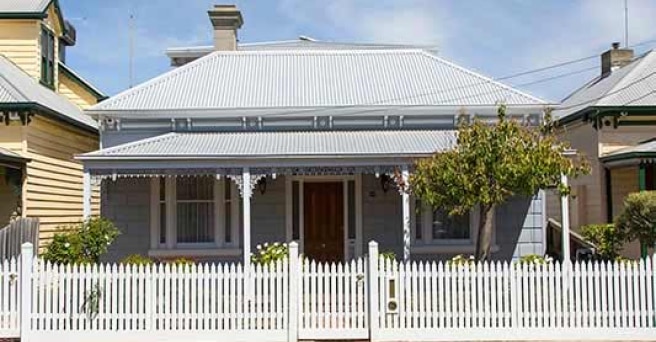
Home energy audit
An audit of your home will uncover the appliances and areas that may be spiking your bills.

If you've tried the basics and are willing to invest more time or money for the prospect of future savings, you could try some of the following options.
This one involves a bit of an up-front cost but may result in potential savings in the long run. Insulation will keep your home warm in the winter but also cool in the summer, saving money on your electricity bill as well.
For extra points, think about double-glazing your windows. This can reduce heat loss or gain by 30% compared to single glazing, as well as reducing noise from outside.
The kind of hot water system you run can make a big difference to your gas bill. There are two main kinds - an instantaneous system and storage system. A storage system heats a large amount of hot water - usually between 135 and 170 litres - and keeps it hot ready for use throughout the day. An instantaneous system only heats the water as you use it, so the system doesn't waste gas on heating water that's not being used. Because of this, instantaneous systems are much cheaper to run and - even better - they won't run out halfway through your shower.
Hot water systems also have star ratings determining their level of efficiency. Even just swapping a 2-Star System to a 4-Star System could provide savings in the long run.
| Usage per day | Rating | Estimated Running Cost* | Savings per year^ |
|---|---|---|---|
| 100 litres at 60°C | 2-Star System | $1.89 | $116.80 |
| 4-Star System | $1.57 | ||
| 160 litres at 60°C | 2-Star System | $2.52 | $116.80 |
| 4-Star System | $2.20 | ||
| 200 litres at 60°C | 2-Star System | $3.07 | $146.00 |
| 4-Star System | $2.67 |
Even if you have made the switch to instantaneous, you may save money by lowering the temperature it heats to. If you don't mind lowering the temperature a few degrees, you can save in the long run.
While you're there, consider patching any leaks and insulating your pipework - this will save any wasted hot water or heat when the water is transported. If you're not sure how, contact a qualified plumber.
Energy efficient appliances may come with a higher price tag, but the potential savings from lower running costs are worth it over time. A higher rating means the appliance is more energy-efficient and costs less to run.
You can also estimate and compare running costs by using tools like this Energy Rating Calculator.
* Estimated cost only, actual cost may differ. It's recommended to calculate costs based on your unique usage patterns and appliances. Additional factors that may influence your appliance's gas costs include its brand, model, energy efficiency, and settings.
^ Savings calculated using the difference in estimated daily running costs multiplied by 365 days in a year.
If you've tried the basics and are willing to invest more time or money for the prospect of future savings, you could try some of the following options.
This one involves a bit of an up-front cost but may result in potential savings in the long run. Insulation will keep your home warm in the winter but also cool in the summer, saving money on your electricity bill as well.
For extra points, think about double-glazing your windows. This can reduce heat loss or gain by 30% compared to single glazing, as well as reducing noise from outside.
The kind of hot water system you run can make a big difference to your gas bill. There are two main kinds - an instantaneous system and storage system. A storage system heats a large amount of hot water - usually between 135 and 170 litres - and keeps it hot ready for use throughout the day. An instantaneous system only heats the water as you use it, so the system doesn't waste gas on heating water that's not being used. Because of this, instantaneous systems are much cheaper to run and - even better - they won't run out halfway through your shower.
Hot water systems also have star ratings determining their level of efficiency. Even just swapping a 2-Star System to a 4-Star System could provide savings in the long run.
Even if you have made the switch to instantaneous, you may save money by lowering the temperature it heats to. If you don't mind lowering the temperature a few degrees, you can save in the long run.
While you're there, consider patching any leaks and insulating your pipework - this will save any wasted hot water or heat when the water is transported. If you're not sure how, contact a qualified plumber.
Energy efficient appliances may come with a higher price tag, but the potential savings from lower running costs are worth it over time. A higher rating means the appliance is more energy-efficient and costs less to run.
You can also estimate and compare running costs by using tools like this Energy Rating Calculator.
More information and tips to save energy can be found on the Australian Government website.
* Estimated cost only, actual cost may differ. It's recommended to calculate costs based on your unique usage patterns and appliances. Additional factors that may influence your appliance's gas costs include its brand, model, energy efficiency, and settings.